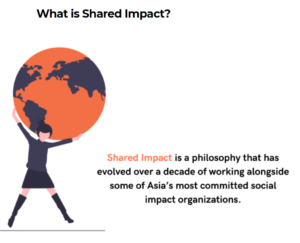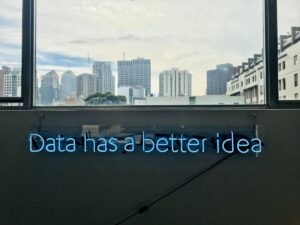In March, the Foundation for Shared Impact (FSI) published The Social Sector Needs a Lifeline – How Everyone Can Help, in Jumpstart Magazine. Our suggestions for helping bolster the sector were met with sympathy and support. But amongst those empathetic responses, we also noticed a consistent refrain. Multiple foundation representatives reached out and suggested that, although tragic, COVID-19 will help eliminate inefficient and ineffective organizations from Hong Kong’s crowded social impact sector.
This reaction surprised us, but it also prompted sincere thought. If well-known foundations and funders are skeptical of the social impact space, and are actively hoping for organizations to fold, how can social impact organizations distinguish themselves and ensure a long-term future of sustained impact?

The Way Forward: the Shared-Impact Model
From our years of work spent driving social impact, we believe that the key to addressing society’s most challenging problems is through what we call the “Shared-Impact Model”. This involves community building and shared resources across a broad array of stakeholders. This article outlines a few key aspects of the Shared-Impact Model, which will help any social impact organization thrive in a post-COVID-19 world.
Engage in Broad Collaboration
When social impact organizations see fundraising and operations as a zero-sum game, it frustrates funders, who desire collaboration and better allocation – not overlap – of time and resources.
Collaboration requires that organizations focus on the things you do well, while relying on others to do what they do well. It also means sharing information, resources, and knowledge, so that goals and operations are synchronized, resources are maximized, and overlap and waste are minimized. Make sure to share both your successes and failures, so that people can learn from your mistakes. An example is the openness adopted by development nonprofit Evidence Action when sharing the failure and lessons learned from one of its poverty alleviation programs.
Freely Share Knowledge and Resources
Even the largest social impact organizations are very small businesses by commercial standards, and this often leads to challenges in terms of allocating resources to cover operational needs.
With our experience in consulting for social impact organizations, we have identified common organizational gaps, and believe that shared knowledge and resources could easily fill those gaps. At FSI, we share our subject matter experts in communications, technology, education, and law with our portfolio of social impact organizations. And through our Community Connections Program, social impact organizations benefit from a broad network of corporate experts in accounting, law, design, programming, photography, etc. Additionally, as part of our Shared-Impact offerings, FSI shares software, technical hardware, and office space among our portfolio.

Focus on Data-Driven Impact Models
The third thing social impact organizations need to realize is that if we want funders to trust us with their money, we need to start proving ourselves worthy of it. That means adopting some of the efficiency and accountability of the business world, while maintaining a laser focus on impact. Currently, even though “impact” is the foundation upon which the sector operates, few organizations have a robust impact measurement system in place. We have to fix that, harnessing technology to efficiently identify successes and failures, so as to dramatically scale impact.
Change of Mindset: Seek Systems Change
Finally, if we really want to drive systemic change, then it’s time we focus on building solutions that actually address underlying problems. A lot of organizations have committed themselves to an issue without asking this fundamental question: Is your proposed solution actually helping to alleviate the underlying problem? If your model is successful, will the problem be reduced, or possibly even eliminated? If not, it may be time to rethink your model. We are not suggesting that you lose focus on the needs of individual victims; but a lot of social impact leaders are so overwhelmed by their daily work, helping the unending wave of individual victims, that they never make the time to focus on solving the underlying problems that they initially set out to resolve.
PathFinders Hong Kong, a charity that works to protect vulnerable children and their migrant mothers, offers a good example of an organization seeking systems change so that it becomes obsolete. In its 2019 Impact Report, Chief Executive Officer Catherine Gurtin wrote: “Our ambition by 2030 is that PathFinders is no longer needed. In addition to ensuring ‘business as normal’ as best we could in 2019, we took time to reflect on what more we need to do to achieve our ambition of ‘fixing’ the problems that drive our beneficiaries into a crisis.”
While we hope that all social impact organizations thrive during this difficult time, in truth there will be opportunities for some organizations to stand above their peers. COVID-19 has given us all an opportunity to consolidate, collaborate, and really focus on fixing some of society’s most broken systems. Through the Shared-Impact Model, organizations will cease to view others only as competitors, and be more inclined to cheer each other on, because success for one organization is success for them all.
This article was originally published in Jumpstart Magazine’s Fall 2020 Issue. This is an unabridged version of the same. To view the original, find Jumpstart Magazine’s Fall 2020 Issue here.



